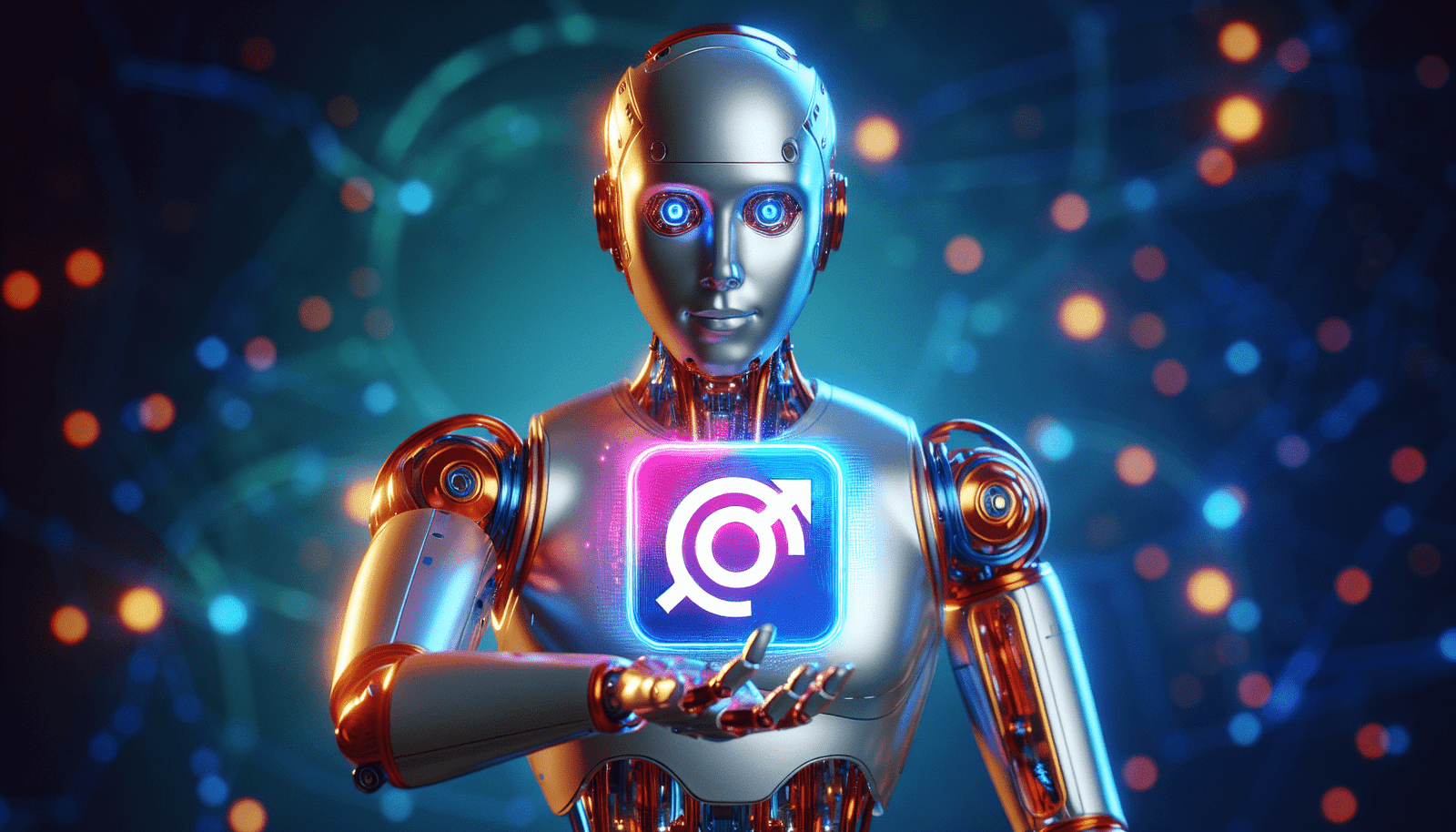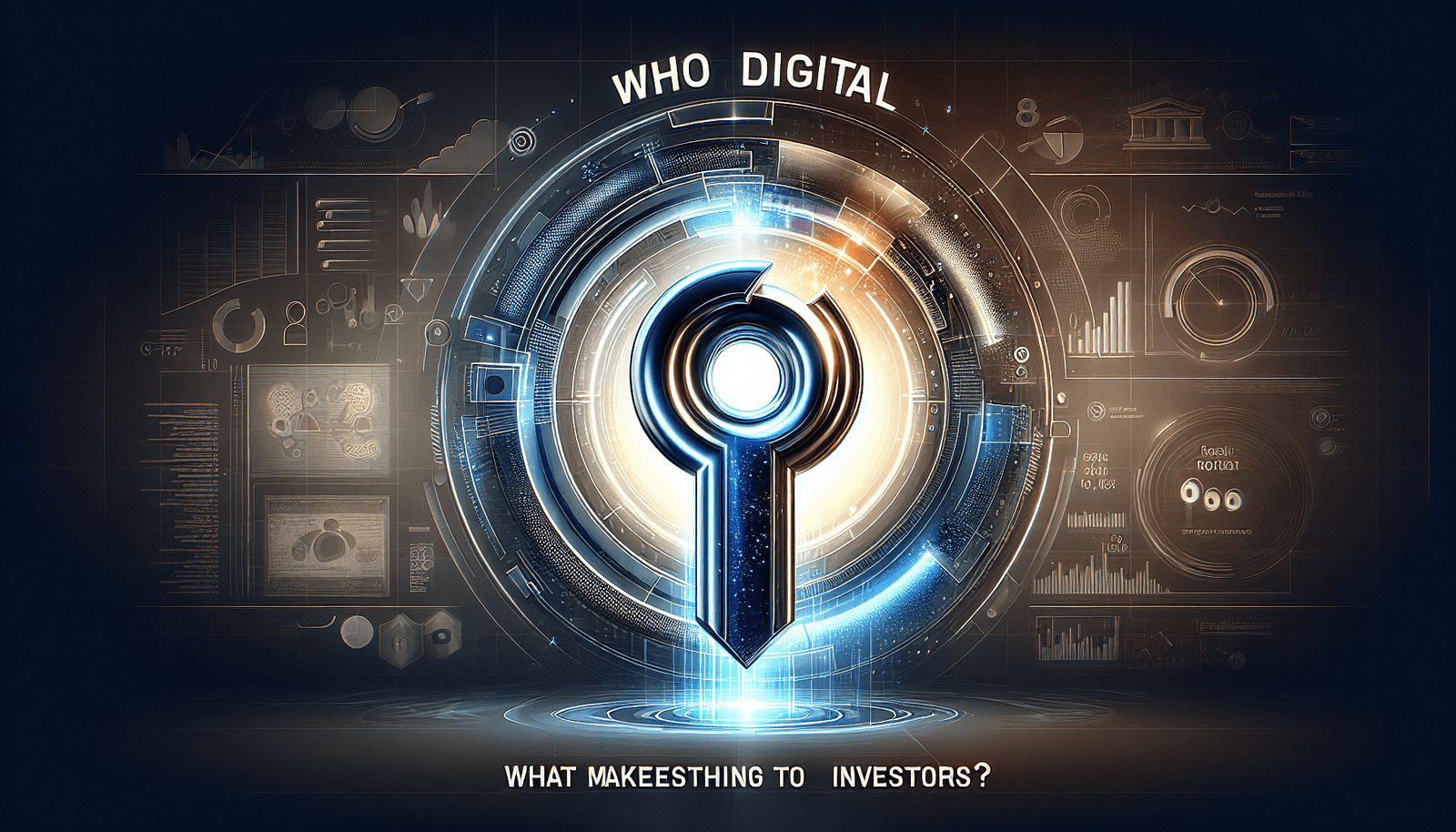In the world of technology, one name stands out as a powerful force driving innovation and progress: Microsoft. With an ecosystem that seamlessly integrates cutting-edge Artificial Intelligence (AI) platforms, Microsoft has cemented its position as a leader in the field. But it’s not just the technology that has gained the trust and admiration of people worldwide – it’s the company’s unwavering commitment to excellence. In this article, we will take a closer look at Microsoft’s stronghold in the AI realm, exploring its dominant platforms and the unparalleled trust people have in its capabilities. Additionally, we will touch upon the significance of stock information in understanding the strength of Microsoft’s presence in the ever-evolving world of technology. So, get ready to embark on a captivating journey into the world of Microsoft’s AI dominance.
Microsoft’s Dominance in Artificial Intelligence
In today’s rapidly evolving technology landscape, Microsoft has emerged as a dominant player in the field of artificial intelligence (AI). With an extensive range of AI platforms and a commitment to ethical practices, Microsoft has gained recognition for its advancements in this field. From AI integration in its popular Office Suite to the development of its virtual assistant Cortana and its cloud computing platform Azure, Microsoft has carved a niche for itself in the AI-driven products and services market. Furthermore, Microsoft’s impressive applications of AI in various sectors such as healthcare, education, smart cities, and business automation highlight the far-reaching impact of its AI technologies. Amidst the success and growth in this area, Microsoft continues to invest in AI research and development, with partnerships with academic institutions and a focus on talent acquisition and training. As a result, Microsoft’s AI capabilities have not only boosted its stock performance but also positioned it as a leader in the AI landscape.
Overview of Microsoft’s AI Platforms
Microsoft’s AI platforms serve as the foundation for its impressive range of AI-driven products and services. The company has developed a comprehensive suite of tools and services under the umbrella of Azure Cognitive Services. These services encompass a broad spectrum of AI capabilities, including vision, speech, language, and decision-making. By providing developers with pre-built AI models and APIs, Azure Cognitive Services makes it easier for organizations to integrate AI into their applications and services. With Azure Cognitive Services, developers can leverage powerful AI algorithms without the need for extensive expertise in machine learning or data science, resulting in increased efficiency and accelerated innovation.
Development of Azure Cognitive Services
Azure Cognitive Services is a testament to Microsoft’s dedication to creating accessible and user-friendly AI tools. The development of this platform was driven by Microsoft’s mission to democratize AI and make it available to organizations of all sizes. By offering a collection of pre-trained AI models, Azure Cognitive Services eliminates the need for companies to develop their models from scratch. This significantly reduces the time and resources required for AI development, enabling organizations to focus on delivering innovative solutions rather than investing in complex AI infrastructure. Azure Cognitive Services has not only expanded the reach of AI but has also opened up new opportunities for small and medium-sized businesses to harness the power of AI for their specific needs.
Recognition for Microsoft’s AI Advancements
Microsoft’s commitment to AI and its advancements in this field have not gone unnoticed. The company has received widespread recognition for its contributions to AI research and development. In 2019, Microsoft was named the leader in Gartner’s Magic Quadrant for Analytics and Business Intelligence Platforms, highlighting its strong position in the AI market. Additionally, Microsoft has been acknowledged for its AI capabilities in various sectors. For instance, in the healthcare industry, Microsoft’s AI technologies have been lauded for their potential to improve diagnostics and treatment. In education, Microsoft’s AI solutions have been credited with enhancing classroom experiences and personalized learning. Moreover, Microsoft’s efforts in developing AI-powered tools for smart cities have been recognized as instrumental in improving urban planning and infrastructure. These accolades not only showcase Microsoft’s dominance in the AI landscape but also validate the impact and value of its AI-driven products and services.
Microsoft’s AI-Driven Products and Services
AI Integration in Office Suite
Microsoft’s Office Suite is one of the most widely used productivity suites globally, and the integration of AI capabilities has further enhanced its functionality. With AI-powered features such as real-time collaboration, intelligent document search, and automated data analysis, Office Suite users can reap the benefits of AI in their day-to-day tasks. For example, Excel’s AI-powered insights feature can analyze large datasets and provide users with meaningful insights and trends. Similarly, PowerPoint can now offer design suggestions based on the content of the presentation, saving valuable time and improving the overall quality of slideshows. By seamlessly integrating AI into its Office Suite, Microsoft has revolutionized productivity and empowered users to achieve more with less effort.
Cortana – Microsoft’s Virtual Assistant
Cortana, Microsoft’s virtual assistant, has become an integral part of the Windows ecosystem. With its AI-powered capabilities, Cortana assists users in a multitude of tasks, ranging from scheduling appointments and sending reminders to providing personalized recommendations and answering questions. Cortana’s ability to understand natural language and context has made it a reliable and intuitive assistant. Moreover, Cortana’s integration with other Microsoft products and services, such as Office 365 and Xbox, ensures a seamless and cohesive user experience across devices. As Microsoft continues to invest in Cortana’s development, the virtual assistant’s AI capabilities are expected to become even more sophisticated and personalized, catering to the unique needs and preferences of individual users.
Azure – Microsoft’s Cloud Computing Platform with AI Capabilities
Azure, Microsoft’s cloud computing platform, serves as the backbone for many AI-driven applications and services. With its scalable infrastructure and built-in AI capabilities, Azure enables organizations to leverage the power of AI without investing in costly hardware or infrastructure. Azure offers a wealth of AI tools and services, including machine learning, natural language processing, and computer vision, empowering developers to build sophisticated AI models and applications. The platform’s flexibility and scalability make it suitable for organizations of all sizes, from startups to large enterprises. By seamlessly integrating AI with cloud computing, Microsoft has provided businesses with the resources and tools necessary to accelerate their AI journey and drive innovation.
Xbox – AI-Powered Gaming Experiences
Microsoft has also ventured into the gaming industry, integrating AI into its Xbox gaming console to enhance gaming experiences. With AI-driven features such as adaptive controllers, intelligent matchmaking, and personalized game recommendations, Xbox provides gamers with a more immersive and tailored gaming experience. For instance, adaptive controllers leverage AI algorithms to adapt to players’ abilities and provide a more accessible and inclusive gaming experience for individuals with disabilities. Furthermore, Xbox’s AI-powered matchmaking system analyzes players’ preferences and skill levels to create balanced and competitive matchups. By infusing AI into gaming, Microsoft has not only improved the entertainment value of its Xbox platform but has also demonstrated the diverse applications and impact of AI across various industries.
Impressive Applications of Microsoft’s AI
Healthcare Industry – Leveraging AI for Improved Diagnostics and Treatment
Microsoft’s AI technologies have made significant strides in revolutionizing the healthcare industry. By harnessing the power of AI, Microsoft is helping healthcare professionals improve diagnostics, treatment plans, and patient outcomes. For instance, AI algorithms can analyze medical images such as X-rays and MRIs, detecting abnormalities or early signs of diseases that might go unnoticed by human eyes. This can help radiologists and physicians make more accurate diagnoses and provide timely interventions. Additionally, AI-powered chatbots and virtual assistants, powered by Microsoft’s technologies, can provide patients with personalized guidance and support, reducing the burden on healthcare professionals and increasing accessibility to healthcare services.
Education Sector – Enhancing Classroom Experiences with AI
In the education sector, Microsoft’s AI solutions have the potential to transform learning environments and provide personalized education experiences. AI-powered tools such as intelligent tutoring systems and adaptive learning platforms can assess students’ strengths and weaknesses, allowing teachers to tailor instruction accordingly. For example, AI algorithms can analyze students’ performance data and provide targeted recommendations for areas of improvement. Virtual reality and augmented reality technologies, integrated with AI, can also create immersive and interactive learning experiences, stimulating students’ engagement and enhancing their understanding of complex concepts. Microsoft’s commitment to integrating AI in its education offerings has the potential to revolutionize the way students learn and teachers teach.
Smart Cities – AI Solutions for Urban Planning and Infrastructure
Microsoft’s AI technologies have the potential to shape the future of smart cities by providing innovative solutions for urban planning and infrastructure. By analyzing vast amounts of data, such as traffic patterns, energy consumption, and environmental conditions, AI algorithms can optimize resource allocation and improve the overall efficiency of urban areas. For instance, AI-powered traffic management systems can intelligently control traffic signals to reduce congestion and commute times. Additionally, AI can play a crucial role in enhancing public safety by detecting abnormal activities or incidents in surveillance footage and alerting relevant authorities in real-time. Microsoft’s AI solutions for smart cities demonstrate the company’s commitment to leveraging technology for the betterment of urban living and sustainability.
Business Automation – Streamlining Operations with AI-Powered Tools
Microsoft’s AI technologies are also driving advancements in business automation, helping organizations streamline their operations and increase productivity. With AI-powered tools such as chatbots, process automation, and predictive analytics, businesses can automate repetitive tasks, enhance customer service, and make data-driven decisions. Chatbots, for example, can handle customer inquiries, freeing up human agents to focus on more complex issues. Process automation tools, powered by AI, can analyze and optimize workflows, identifying bottlenecks or areas for improvement. Furthermore, predictive analytics models can analyze vast amounts of data to forecast trends, anticipate customer needs, and optimize inventory management. Microsoft’s AI solutions empower businesses to become more efficient, agile, and competitive in today’s fast-paced digital landscape.
Microsoft’s Commitment to AI Ethics and Privacy
As Microsoft continues to push the boundaries of AI, it remains steadfast in its commitment to ethical AI practices and user privacy. The company recognizes the need for responsible development and deployment of AI technologies to avoid potential risks and ensure positive outcomes. Microsoft adheres to a set of AI principles grounded in fairness, transparency, accountability, and inclusivity. Transparency is a key aspect of Microsoft’s AI philosophy, with the company actively working to make AI algorithms and systems explainable and understandable to users. By promoting transparency, Microsoft aims to build trust with users and alleviate concerns about the “black box” nature of AI.
Additionally, Microsoft understands the importance of privacy in the age of AI. The company embeds privacy and security measures across its AI platforms, ensuring that user data is handled with the utmost care and protection. Microsoft’s commitment to privacy is further reinforced by its compliance with privacy regulations such as the European Union’s General Data Protection Regulation (GDPR). By prioritizing ethical practices and privacy protections, Microsoft aims to set a standard for responsible AI development and deployment, fostering trust among users and stakeholders.
Trust in Microsoft’s AI
Microsoft’s dominance in the technology landscape, coupled with its commitment to ethical practices, positions the company as a trusted player in the field of AI. There are several factors contributing to the trust users place in Microsoft’s AI capabilities:
Building Trust through Ethical Practices
Microsoft’s emphasis on ethical AI practices and transparency has played a crucial role in building trust with users. By prioritizing fairness, accountability, and inclusivity in AI development, Microsoft has demonstrated its commitment to responsible and trustworthy AI solutions. Users can have confidence that Microsoft’s AI technologies are designed with their best interests in mind, minimizing potential ethical concerns and biases often associated with AI.
User Trust in Microsoft’s Established Brand
Microsoft’s longstanding presence in the tech industry and its reputation as a reliable and trustworthy company contribute to user trust in its AI capabilities. With a track record of delivering quality products and services, Microsoft has earned the loyalty and confidence of millions of users worldwide. This trust extends to its AI offerings, as users have come to expect the same level of excellence and reliability from Microsoft’s AI-driven products and services.
Security Measures to Protect AI-Powered Systems
Microsoft understands the importance of securing AI-powered systems against potential threats and vulnerabilities. The company invests heavily in security measures, ensuring that AI technologies are resilient to attacks and unauthorized access. By proactively addressing security concerns, Microsoft instills trust and confidence in users, assuring them that their data and AI-powered systems are protected.
Advantages of Microsoft’s AI Ecosystem
Microsoft’s AI ecosystem offers several advantages that contribute to its dominance in the AI landscape:
Integration of AI Across Multiple Platforms and Devices
Microsoft’s wide range of platforms, including Windows, Office, Azure, and Xbox, ensures seamless integration of AI capabilities across multiple devices. This integration enhances user experiences by delivering consistent and intuitive AI-driven features regardless of the device being used. Users can access AI-powered functionalities seamlessly across their smartphones, tablets, computers, and gaming consoles, creating a unified and connected experience.
Compatibility with Other Microsoft Products and Services
Microsoft’s AI ecosystem is built to be compatible with its existing suite of products and services. This compatibility allows organizations and individuals to leverage AI alongside their familiar Microsoft tools and workflows. For example, developers can easily integrate AI capabilities into their applications using Azure Cognitive Services, which seamlessly integrates with other Azure services and tools such as Azure Machine Learning and Azure Functions. Microsoft’s compatibility approach enables users to harness the power of AI without disrupting their existing workflows, ensuring a smooth transition and maximizing productivity.
Flexibility for Developers to Build Custom AI Solutions
Microsoft’s AI ecosystem provides developers with the flexibility to build custom AI solutions tailored to their unique business needs. With comprehensive AI tools and services available on Azure, developers have access to top-notch technologies such as machine learning, natural language processing, and computer vision. This flexibility allows organizations to innovate and differentiate themselves by developing AI solutions specific to their industry or niche. Developers can leverage Microsoft’s AI platform to create sophisticated models, train them using large datasets, and deploy them at scale.
Microsoft’s Investments in AI Research and Development
Microsoft’s dominance in the AI landscape can be attributed, in part, to its consistent investments in AI research and development. The company actively collaborates with academic and research institutions to foster innovation and drive breakthroughs in AI technologies. By partnering with leading experts in the field, Microsoft gains access to cutting-edge research, which enables the company to stay at the forefront of AI advancements. Through these partnerships, Microsoft promotes knowledge sharing and collaboration, fostering a vibrant AI research community.
Additionally, Microsoft demonstrates its commitment to AI by investing in talent acquisition and training. The company recruits top AI experts and researchers from around the world, ensuring a diverse and talented workforce dedicated to pushing the boundaries of AI. Microsoft also provides extensive training and development opportunities for its employees, empowering them to continually enhance their AI expertise and contribute to the company’s AI-driven initiatives.
With its significant investments in AI research and development, Microsoft remains poised to lead the way in AI innovation. By staying ahead of the curve and continuously pushing the boundaries of what AI can achieve, Microsoft positions itself as a key driver of technological advancement.
Impact of Microsoft’s AI on Stock Performance
Microsoft’s AI capabilities have had a positive influence on its stock value and market perception. The market recognizes the potential of AI and its ability to drive innovation across various industries. As Microsoft continues to expand its AI offerings and demonstrate its capabilities through successful implementations, investor confidence in the company’s ability to generate revenue and sustain growth has increased.
Investors view Microsoft’s strong position in the AI landscape as a competitive advantage, positioning the company for long-term success. The demand for AI-driven solutions is growing rapidly, and Microsoft’s ability to offer comprehensive AI platforms and products positions it favorably in the market. As a result, investors perceive Microsoft as a sound investment opportunity, anticipating future growth and revenue generation driven by the company’s AI initiatives.
Challenges and Future Outlook for Microsoft’s AI
While Microsoft’s dominance in AI is evident, the company does face challenges and uncertainties in an increasingly competitive landscape:
Competition from Other Tech Giants like Google and Amazon
Microsoft faces stiff competition from other tech giants, such as Google and Amazon, who are also investing heavily in AI research and development. These companies have the resources and expertise to develop cutting-edge AI technologies and attract top talent. Microsoft must continue to differentiate itself and offer unique value propositions to stay ahead of the competition. By leveraging its existing ecosystem, partnerships, and commitment to ethical practices, Microsoft can position itself as the preferred choice for businesses and users seeking trusted AI solutions.
Addressing Concerns around Job Displacement
As AI technologies continue to automate tasks traditionally performed by humans, concerns about job displacement have emerged. Microsoft, like other AI leaders, must address these concerns and proactively work towards ensuring a smooth transition for the workforce. This includes retraining and upskilling programs to equip individuals with the necessary skills for the AI-driven job market. By focusing on responsible AI practices and emphasizing the collaboration between humans and AI, Microsoft can help alleviate concerns about job displacement and foster a future where AI enhances human capabilities.
Exploring New Avenues for AI Application and Expansion
While Microsoft has made significant strides in applying AI to various industries, there are still untapped opportunities for AI application and expansion. Microsoft must continue to explore new avenues and identify emerging trends to stay ahead of the curve. Areas such as autonomous vehicles, personalized healthcare, and sustainable energy are ripe for AI-driven innovations. By investing in research and development and fostering partnerships with stakeholders in these industries, Microsoft can unlock the full potential of AI and shape the future of these sectors.
Conclusion
Microsoft’s dominance in the field of artificial intelligence is a result of its comprehensive AI platforms, impressive AI-driven products and services, and commitment to ethical AI practices. The integration of AI across multiple platforms and devices, compatibility with other Microsoft products, and flexibility for developers to build custom AI solutions have further strengthened Microsoft’s position in the AI landscape. The company’s investments in AI research and development, partnerships with academic institutions, and focus on talent acquisition showcase its dedication to continuous innovation. Microsoft’s strong stock performance and investor confidence reflect the market’s recognition of the company’s AI capabilities and potential for future growth. Nonetheless, Microsoft faces challenges in a competitive landscape and must overcome concerns surrounding job displacement while exploring new avenues for AI application. With its strong foundation and commitment to ethical practices, Microsoft is well-positioned for continued success and innovation in the field of AI.




